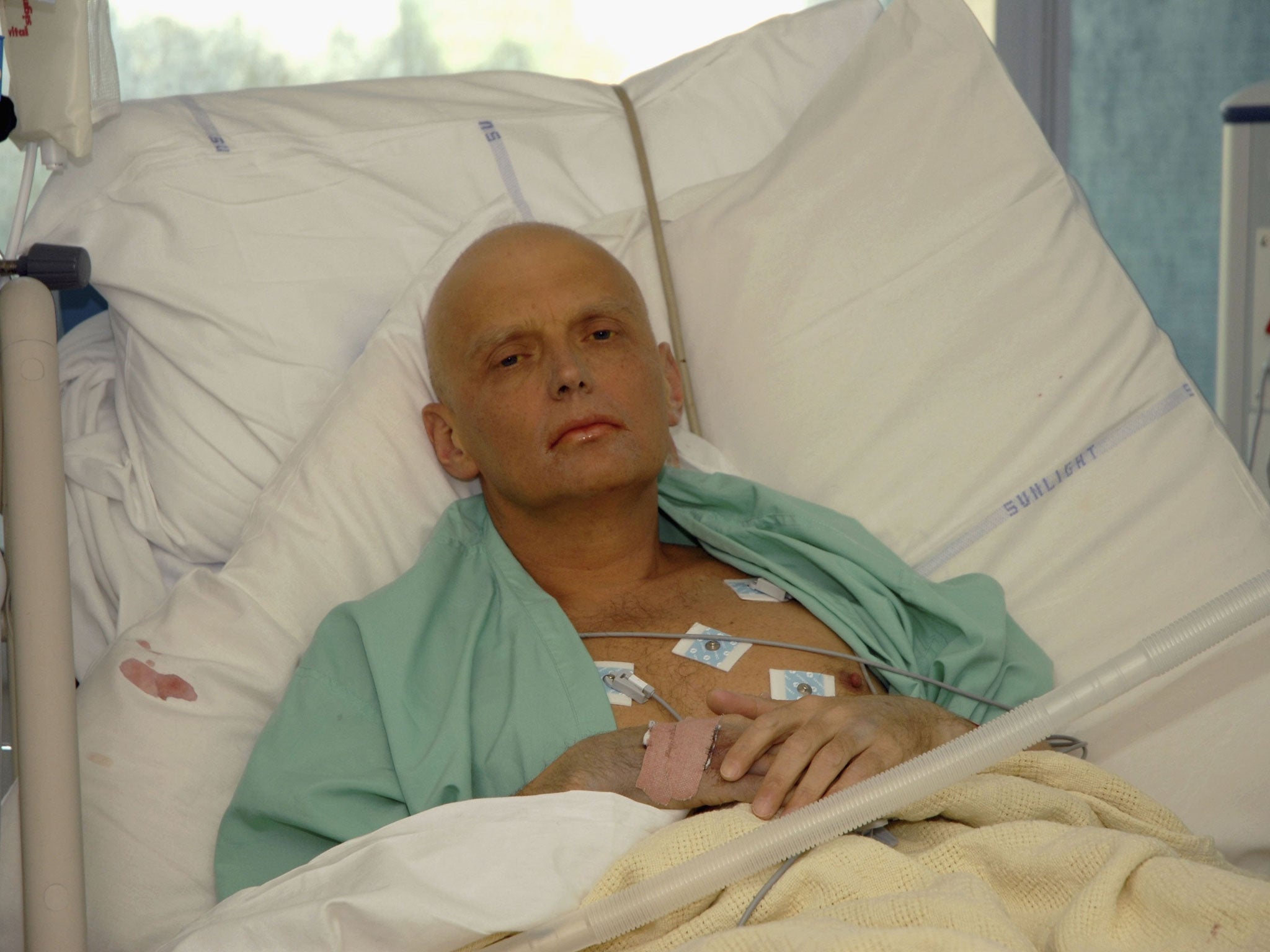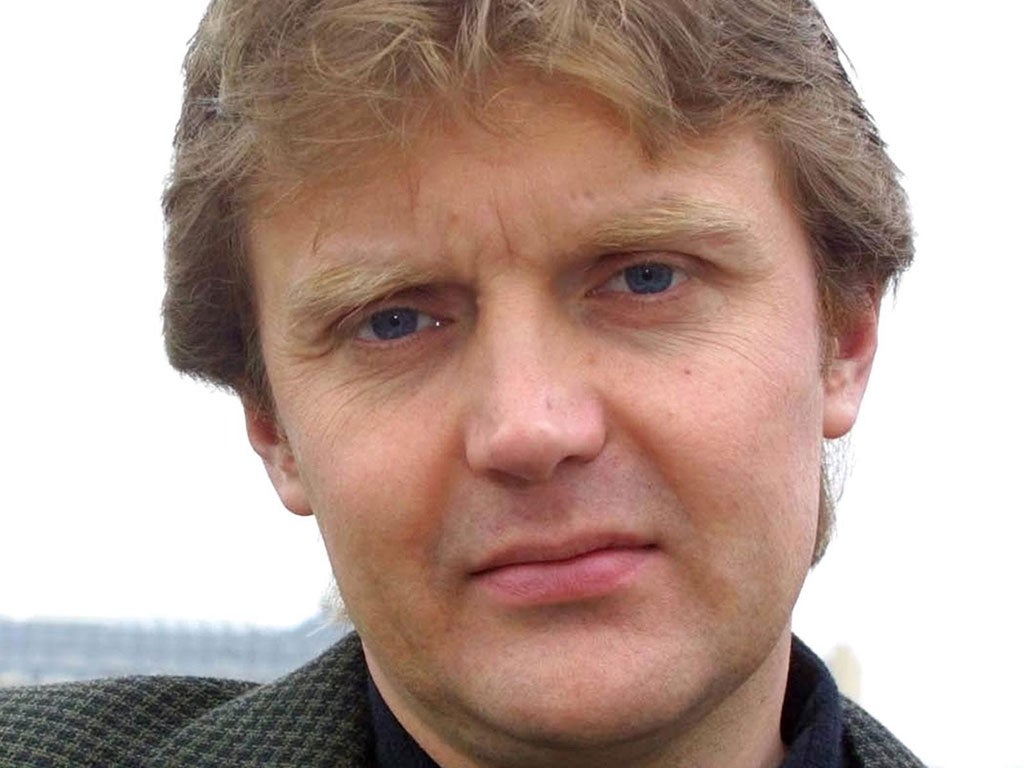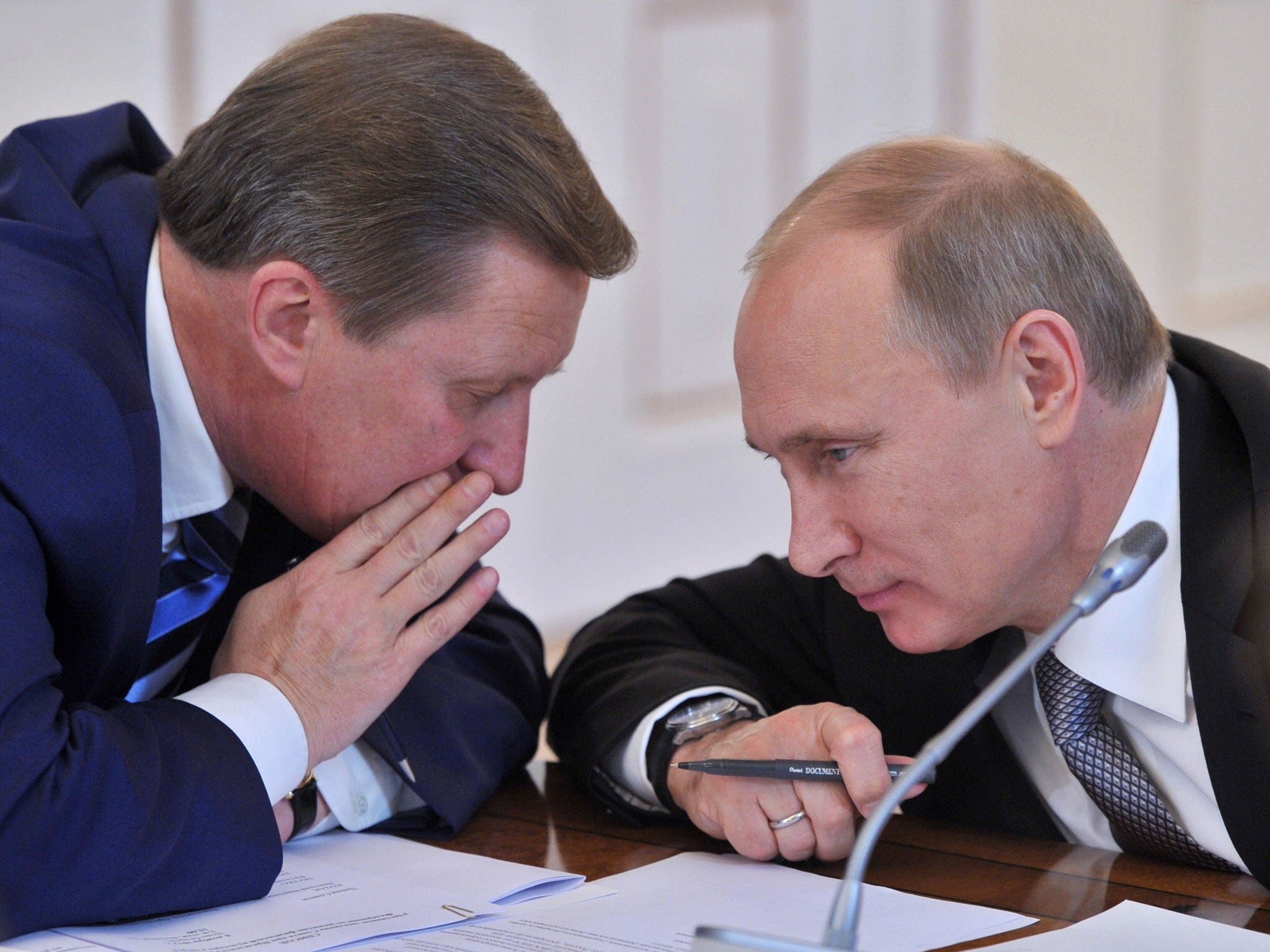Alexander Litvinenko inquiry: Former spy's death was 'act of nuclear terrorism', hearing told
Mr Litvinenko died in hospital nearly three weeks after consuming tea laced with polonium while meeting two Russian men at a hotel in London

Support truly
independent journalism
Our mission is to deliver unbiased, fact-based reporting that holds power to account and exposes the truth.
Whether $5 or $50, every contribution counts.
Support us to deliver journalism without an agenda.

Louise Thomas
Editor
The murder of Alexander Litvinenko was an “act of nuclear terrorism”, the barrister representing the former Russian spy's wife told a public inquiry today.
Mr Litvinenko, a former secret agent and political dissident, died in hospital nearly three weeks after consuming tea laced with radioactive chemical polonium while meeting two Russian men at a hotel in London.
The Russian spy told police while on his deathbed that the only person who could have authorised his poisoning was Vladimir Putin.
The QC representing Marina Litvinenko described Russia as a “mafia state” and told the inquiry that the spy's death was “an act of unspeakable barbarism”.
“Vladimir Putin should be unmasked by this inquiry as nothing more or less than a common criminal dressed up as a Head of State,” said Mr Emmerson, pointing to the "intimate relationship between the Kremlin and organised crime".
He added that Mr Litvinenko was murdered for "trying to expose the corruption" surrounding the Russian President.
"We know now that in revealing Putin's links to organised crime, Mr Litvinenko had reached a point where he was hovering near the flame like a proverbial moth," he said.

Using Mr Litvinenko's nickname, Mr Emmerson told the inquiry: "That murder was an act of unspeakable barbarism that inflicted on [Alexander] Sasha Litvinenko the most painful and lingering death imaginable.
“It was an act of nuclear terrorism on the streets of a major city which put the lives of numerous other members of the public at risk,” he said.
The inquiry also today heard extracts from Mr Litvinenko's interviews with police shortly before his death.
Mr Litvinenko told police: "I have no doubt this was done by the Russia secret services."
At the opening of the hearing today, counsel to the inquiry Robin Tam QC said thousands of Britons and tourists were put at risk from radioactivity when Mr Litvinenko was poisoned.
Mr Tam said traces of polonium were found across the city at the time of the former spy's death, including Arsenal FC's Emirates Stadium, bars and hotel rooms used by the prime suspects Andrey Lugovoy and Dmitry Kovtun, the Telegraph reported.
A public health alert was issued around the time of the death, when traces of the chemical were found in “large numbers of places across London.”

Mr Emmerson went on to claim Mr Litvinenko was killed to prevent him from giving evidence as a witness in a criminal prosecution in Spain, which would have exposed Putin's links to an organised crime syndicate operating in the country.
The inquiry heard that former KGB bodyguard Andrei Lugovoi and Dmitri Kovtun have been identified as the prime suspects in the killing.
In 1998 Mr Litvinenko publicly exposed a Russian intelligence service - FSB - plot to murder Russian billionaire Boris Berezovsky.
"By these actions, he had broken the culture of silence about the inner workings of the FSB," Mr Emmerson said. "In reality he was a marked man from that moment onwards."
Vladimir Putin, who was the head of the FSB at the time, was a “ruthless and deadly enemy for Mr Litvinenko to antagonise” Emmerson stated.
After Mr Litvinenko's death, the Kremlin "cynically" set out to portray him as a “traitor” rather than a whistleblower, said Mr Emmerson.
Having arrived in Britain, Mr Litvinenko continued to campaign against FSB corruption and Mr Putin's regime.
Mr Emmerson said his book Blowing Up Russia exposed an FSB plot to blow up Russian buildings to trigger a second Chechen war.
The QC said the plot "in order to provide a pretext for a Chechen offensive was of course the very military action that swept Vladimir Putin into power".
A second book written by Mr Litvinenko alleged links between Mr Putin and an organised crime gang active in St Petersburg in the mid-nineties when he was deputy mayor of the city.
The inquiry will set out to answer whether there is sufficient evidence “to prove in an independent judicial inquiry what everyone else already knows - that the murder was ordered by[...] the Kremlin," Mr Emerson added.
Other theories about the killing were “unfounded and absurd” and “very easily” dismissed, he said.
Mr Emmerson continued that there was not the "slightest doubt" that Mr Litvinenko was murdered by Andrei Lugovoi and Dmitri Kovtun, and called his death "an act of political revenge" and "a lethal deterrence".
Britain has accused Russia of involvement in the death. Moscow denies the claim, and has refused to extradite the two men identified by Britain as the prime suspects.
The hearing continues.
Additional reporting by PA
Subscribe to Independent Premium to bookmark this article
Want to bookmark your favourite articles and stories to read or reference later? Start your Independent Premium subscription today.